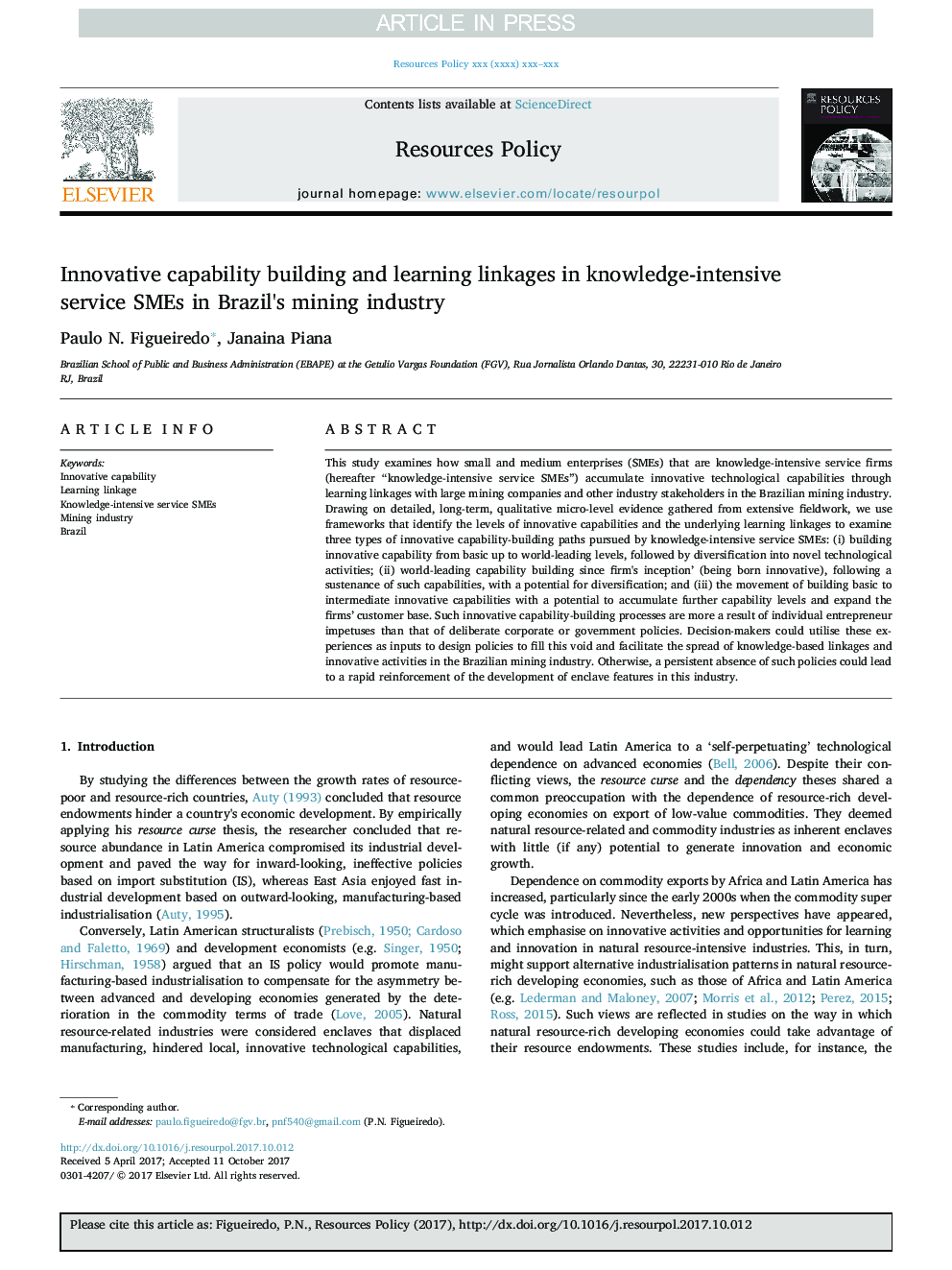| Article ID | Journal | Published Year | Pages | File Type |
|---|---|---|---|---|
| 10153760 | Resources Policy | 2018 | 13 Pages |
Abstract
This study examines how small and medium enterprises (SMEs) that are knowledge-intensive service firms (hereafter “knowledge-intensive service SMEs”) accumulate innovative technological capabilities through learning linkages with large mining companies and other industry stakeholders in the Brazilian mining industry. Drawing on detailed, long-term, qualitative micro-level evidence gathered from extensive fieldwork, we use frameworks that identify the levels of innovative capabilities and the underlying learning linkages to examine three types of innovative capability-building paths pursued by knowledge-intensive service SMEs: (i) building innovative capability from basic up to world-leading levels, followed by diversification into novel technological activities; (ii) world-leading capability building since firm's inception' (being born innovative), following a sustenance of such capabilities, with a potential for diversification; and (iii) the movement of building basic to intermediate innovative capabilities with a potential to accumulate further capability levels and expand the firms' customer base. Such innovative capability-building processes are more a result of individual entrepreneur impetuses than that of deliberate corporate or government policies. Decision-makers could utilise these experiences as inputs to design policies to fill this void and facilitate the spread of knowledge-based linkages and innovative activities in the Brazilian mining industry. Otherwise, a persistent absence of such policies could lead to a rapid reinforcement of the development of enclave features in this industry.
Related Topics
Physical Sciences and Engineering
Earth and Planetary Sciences
Economic Geology
Authors
Paulo N. Figueiredo, Janaina Piana,
